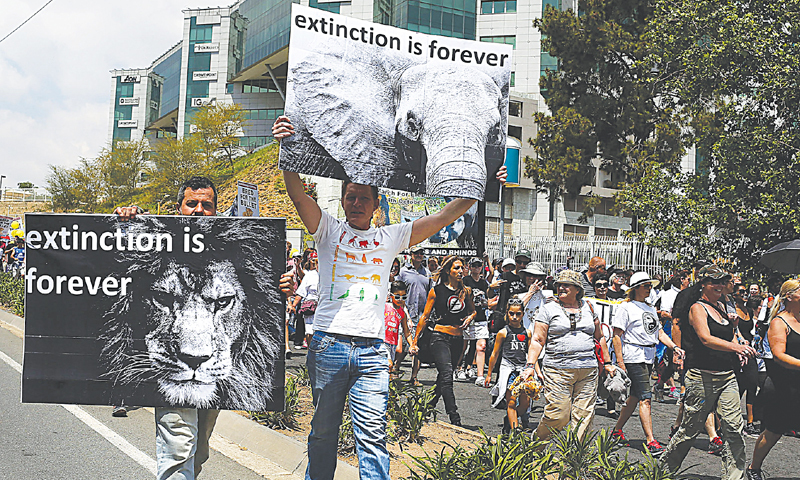JOHANNESBURG: Thousands in South Africa and around the world marched on Saturday to demand that governments do more to stop illegal trade in slaughtered rhinoceroses and elephants.
The protests, organised by a movement of grassroot groups, were held in 136 cities and towns across six continents, from Soweto to San Francisco and Tokyo.
In South Africa, which is struggling to stem a rhino poaching crisis, demonstrators gathered in 17 cities.
“We are protesting against the political leaders of the world who do not have the guts and political will to make changes in their laws,” Dex Kotze, one of the march organisers, told reporters.
“We have to do this for our future generation,” he said. “The youth today is making a statement globally in 136 cities that it’s their heritage that is being killed for hundreds of years, it’s going for stop.
“From 27 million elephants 350 years ago, Africa now has about 400,000 left, and roughly nine per cent of those are being killed each year, Kotze said.
South Africa, home to the world’s largest population of rhinos, has seen at least 700 killed so far this year.
The poaching of the rare African animal is increasing to meet demand from Asian countries where the rhino horn has long been used in traditional medicines for a variety of ailments, including fever and rheumatism.
More than 35,000 elephants are also killed across Africa very year for their tusks, which are used, especially in China, for prized decorations and trinkets.
Kotze said the protests meant to highlight the so-called gang-of-19 countries listed by CITES, the international regulatory body for trade in wildlife, as not doing enough to curb trafficking. Among the countries are China, Vietnam, Laos,Mozambique, Angola and Kenya.
“These countries need to change their laws,” he said.
Kotze took aim at China and warned that if it does not shut its 37 ivory carving factories and 130 retail outlets, “we will lose all the elephants”.
Wildlife crime is estimated to be worth around $20 billion a year,” according to Kotze and “terrorist organisations like Al-Shebab are using ivory trafficking and exchange ivory for weapons.”
Published in Dawn, October 5th , 2014













































